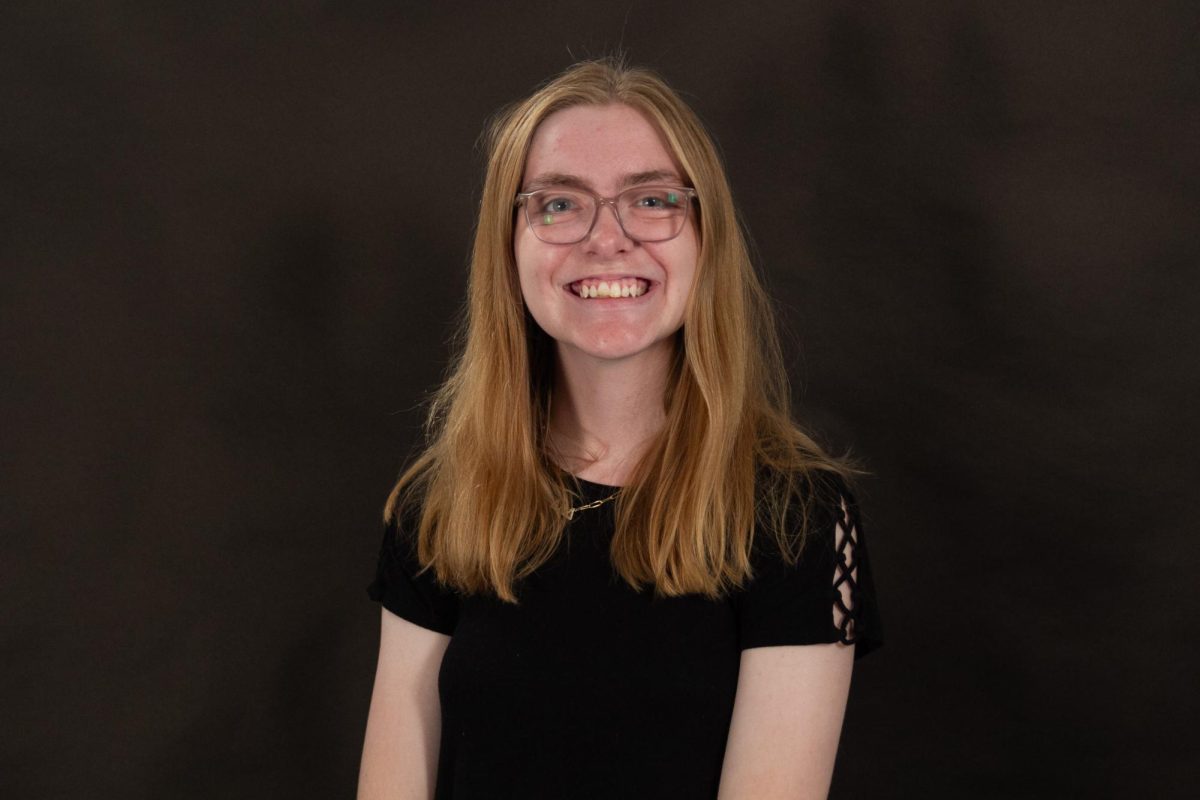End of the year celebrations
November 21, 2012
With the holiday season nearing, Simpson recognizes many of the different and diverse holiday traditions. The Simpsonian spoke with different members of the Simpson community about three different holiday traditions and how they are celebrated.
Saint Lucia’s Day
Saint Lucia is a holiday tradition that the music department at Simpson has been celebrating for years.
Saint Lucia’s Day is a Swedish celebration named after Santa Lucia, the patron saint of Sweden, and is celebrated on the first day of Advent.
The tradition behind Saint Lucia’s Day is the oldest daughter of the household waking up early in the morning and preparing coffee and a tray of cookies. She then takes the coffee and cookies and delivers them to everyone in the house, in her white sleeping robes with a crown of candles upon her head, which celebrates the beginning of the Christmas season for the family.
The music department recognizes this tradition every year at their annual Christmas party, which is a tradition that is over 70 years old started by Sven and Mildred Lekberg, long time professors and department chairs at Simpson.
The party is a time when students go out into the community and carol then back to Dr. Robert Larsen’s house, where the festivities continue.
“A little tradition we have with the party is when a senior girl is chosen as Saint Lucia, and in the middle of the party, she appears with her crown of candles and the coffee pot, and ushers everybody into the kitchen for refreshments,” Larsen said.
The crown of candles used in the Saint Lucia tradition is the one that belonged to the Lekberg’s.
Larsen said that both the Christmas party and the celebration of Saint Lucia are very special to the music department and something they all enjoy.
Hanukkah
Hanukkah is a holiday that is celebrated by the practitioners of Judaism. The holiday itself is a celebration of a military victory led by the Macabees, during a time of discrimination of the Jewish people.
“Since it is a military victory, it’s actually a very minor holiday in the scheme of Jewish holidays,” Assistant Professor of Math Heidi Berger said. “I think Hanukkah is well known because it revolves around Christmas.”
Berger said the story of Hanukkah was softened to make it more palatable for kids, instead of telling a story of a guerilla warfare victory.
“They made up a myth that the temple had been destroyed and there wasn’t enough oil for services, there was only a little drop left and miraculously, it lasted for eight days and so there is a holiday to celebrate the miracle of being able to restore the temple with just a mere drop of oil,” Berger said.
Berger says a number of the traditions that are part of Hanukkah originate from the oil story.
The holiday lasts eight days and nights, because the people who were victorious in the battle wanted it to last that long. Each night a candle is lit on a candelabra, known as a Menorah, which goes along with the symbolism of the oil.
The foods that ate during Hanukkah include potato pancakes, jelly donuts and other foods prepared in oil to go back to the oil theme.
Along with these traditions, presents are given each night and the game dradle is played.
Berger said the importance of Hanukkah is the idea of freedom.
“A lot of the holidays, not just Hanukkah have some sort of theme around freedom,” Berger said. “There is a common theme, someone didn’t like the Jews and now the Jews fought them and prevailed and I think the idea of survival and perseverance are important.”
Kwanzaa
Kwanzaa is a newer celebration that was started in 1966 by Maulana Karenga and is the first specifically African American holiday. The word Kwanzaa comes from the Swahili term “first fruit”, and is based around many African first fruit festivals.
Kwanzaa is a seven-day event from Dec. 26 to Jan. 1 and each night a candle is lit that represents the seven principles of Kwanzaa. These principles include unity for family and community, self-determination, creative work and responsibility, cooperative economics, collective vocation, creativity and faith.
While Hanukkah and Christmas are related to certain religious beliefs, Kwanzaa is not.
“It’s not directly tied to an organized religious group; however, I think that some of he principles are definitely similar to some of the organized religious groups,” Walter Lain, assistant dean of multicultural and international affairs, said.
“It’s difficult for us to celebrate here, because it’s usually between the period of Christmas and New Years, and were out of school during that period of time,” Lain said. “Typically at Simpson, when we’ve done it, we just combine it into one evening.”
There are numerous groups who are offering different ways to recognize these certain holidays and traditions.
Interfaith with Religious Life Community [RLC] will be putting out displays of artifacts related to holidays like Hanukkah and Kwanzaa. RLC will also be setting up ways to help students who celebrate these traditions do so while they are at Simpson.
“Hanukkah, I know falls during finals, but those nights we can come and light the candles and make sure those students are included and do those traditions if they want to,” junior and Interfaith Intern Jessica Prowant said.
“It’s important for Simpson Students to know about the different holiday celebrations that go on because part of being an adult is knowing your surroundings and knowing the people around you,” Prowant said.





